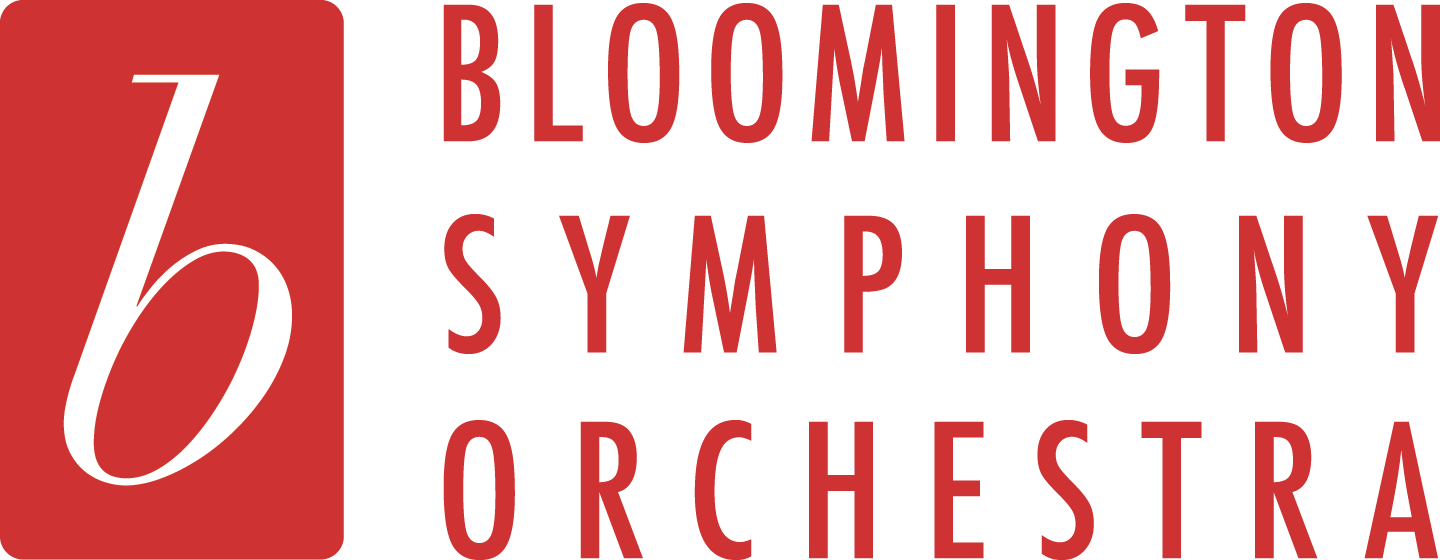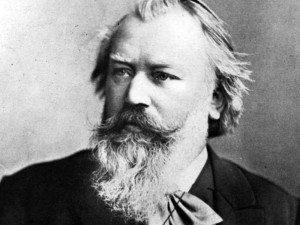Before each concert, we share “Manny’s Musings,” thoughts from our Music Director and Conductor, Manny Laureano. This is the final edition of the “Musings” for the “From Boisterous to Pastoral” concert that will be performed on Sunday, February 24, 2019.
Symphony No. 2 in D Major, Op. 73
by Johannes Brahms
I will ask the readers of this particular set of notes about the Second Symphony of Johannes Brahms (1833-1897) to indulge the author in a bit of sentimental folly. The hope of yours truly is that the recollection that has made this work such a favorite of mine would give Brahms cause to smile.
As a fledgling trumpeter in New York City, I had the opportunity—nay blessing—to play the first movement of this work by the man who shook the dust of his native Hamburg, Germany, from his feet, to be known more as a Viennese composer and artist—something for which the citizens of his birth city have still not forgiven. I was instantly enraptured by the sounds of this opus 73 of his. There was much for me to absorb, to be sure, but I was mesmerized by a theme that he had written earlier (to honor the birth of a child) that found it’s way into this Pastoral D Major symphony. So much so, in fact, that in my reverie I missed my next entrance! You, as the listener, will have no such problem since you are encouraged to dream away in the comfort of your seat.
There’s plenty from musicological and historical vantage points to appreciate here, from the summer getaways in the south of Austria to the impeccable structures of each movement that serve as the fabric he uses to weave his melodic/harmonic portraits. However, the magic in this music for the first-time listener is set firmly in the way it evolves so naturally. That is not to imply at all that the music is predictable. Far from it! Rather, it changes like a color wheel that is filled with warmth and stark hues.
The rolling cellos and basses introduce a duet by two horns that will be heard throughout the first movement as the first violins sit patiently, waiting to play what seems like nothing more than an etude of widening intervals. The sweetness of that simplicity is answered by a chorus of monk-like low brass that introduces a beautiful arching theme, once again, in the hands of the violins. The once-rolling theme is animated shortly thereafter and it is at that point that the listener realizes that the first movement will be full of many more climaxes and also charming surprises, particularly at the end coda.
The thoughtfulness of the second movement is a display of the beauty of the low and tenor instruments of the orchestra. There will be ample opportunity for the soprano members of the orchestra to sing in solo settings and also en masse. Brahms shows his handy ability to shift his rhythmic flow from straight 4/4 time to a 12/8 “swing” that brings to mind the Barcarolle from Tales of Hoffmann by Offenbach.
What’s a Brahms symphony without an opportunity to be a bit playful? The third movement gives him a chance to, once again, play with pulses and time signatures to give the illusion that he has written everything in the movement in the same time signature. In fact, he goes from 3/4 to 2/4 to 3/4 to 3/8 to 9/8 and finally back to 3/4 in the sliest manner! He has taken a walk and every time he turns his head he sees a different scene, barely ever stopping to stand still.
If D Major was a key that Bach used to celebrate in a joyful manner, well, that was good enough for Brahms. The quiet murmuring that begins the finale gives way to unrepentant joy in Brahms’ hands. There are moments of introspection and development that are ravishingly atmospheric to give us a moment to breathe. Make that recovery quick, though, for Brahms is at his joyful best as the coda challenges the orchestra to race to the finish line as the low brass remind us what key we are in!
Join Music Director & Conductor Manny Laureano, for the concert, “From Boisterous to Pastoral” featuring Catherine Carson, winner of the Mary West Solo Competition as soloist for Camille Saint-Saëns’ Violin Concerto No. 3. The concert takes place on Sunday, February 24, 2019, at 3 p.m., at the Gideon S. Ives Auditorium at the Masonic Heritage Center (11411 Masonic Home Drive, Bloomington)
To learn more about the concert, click here. You can order tickets online through the Masonic Heritage Center Box Office, or by calling 952-948-6506.

